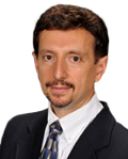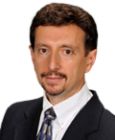Spirituality
When Hope Became an Endangered Species: November 22nd, 1963
Understanding JFK's Legacy of Hope
Posted November 22, 2013
I have made a career of studying hope. As a clinical psychologist I have been mainly concerned with the role of hope in combatting anxiety and depression, and the healing power of hope in confronting a serious illness. As a result of Barack Obama’s 2008 campaign of “hope and change” I have increasingly been asked to comment on the role of hope in politics. I have shared a number of thoughts on this topic with members of the media, with my blogs on this site, and with colleagues and friends.
On the 50th anniversary of the assassination of President Kennedy, I thought it would be fitting to reflect on the impact of his death upon the national psyche and what lessons we might draw going forward; particularly in regards to restoring and building hope.
Let me be clear. I am sidestepping the landmines of who killed the president, whether his leadership measured up to his early promise, or if his character flaws outweighed his more noble advancements. I want to focus only on hope.
It has often been suggested that November 22nd, 1963 was a watershed moment; a psychological divide was created, separating the nearly palpable hope of “before” with a sense of irreversible despair that came “after”. All you need to do is pair “JFK” and “hope” in a Google search and dozens of entries will fill your screen, punctuated with phrases like “the death of hope”, “killing hope’, or [the assassination] “ripped apart the national era of hope”.
In my book, Hope in the age of anxiety, I explain that hope is based on the four greatest human needs: attachment, mastery, survival, and spirituality.
I will try to convey the emotional impact of that day fifty years ago through a montage of 22 reflections, a juxtaposition of the psychological building blocks of hope placed alongside signature passages from JFK’s greatest speeches, many of them ironically delivered just months before his assassination. These quotes simultaneously capture the deep hope that he projected onto the American psyche and perhaps may provide a little more insight into what was endangered on that day in Dealey Plaza.
Attachment (Trust and Openness)
1. Hope is initially developed through positive attachments. The lifespan theorist Erik Erikson linked the capacity for hope to a balance of trust over mistrust. Philosopher Joseph Godfrey concurred with Erikson by highlighting the importance of having “fundamental hope”; a base of trust, feelings of connectedness with others, and the assurance of a continued valued presence. In my research, I have been able to empirically verify that more hopeful young adults report less loneliness as well as a history of positive parenting.
2. The philosopher Gabriel Marcel wrote that openness was both the starting point and endpoint of real hope. Without trust and openness, little positive input can enter to fuel hope. With hope, an individual remains open, creating a positive feedback cycle.
3. In his inaugural address, Kennedy offered continued presence: “To those old allies whose cultural and spiritual origins we share, we pledge the loyalty of faithful friends. United there is little we cannot do in a host of cooperative ventures. Divided there is little we can do, for we dare not meet a powerful challenge at odds and split asunder.”
4. In June 1963, Kennedy delivered his Civil Rights Address. He noted that legislation alone could not solve the problem of discrimination. He expressed trust in the white majority and the African American community: “This is one country. It has become one country because all of us and all the people who came here had an equal chance to develop their talents. We cannot say to ten percent of the population that you can't have that right; that your children cannot have the chance to develop whatever talents they have; that the only way that they are going to get their rights is to go in the street and demonstrate. Therefore, I'm asking for your help in making it easier for us to move ahead and to provide the kind of equality of treatment which we would want ourselves; to give a chance for every child to be educated to the limit of his talents…We have a right to expect that the Negro community will be responsible, will uphold the law, but they have a right to expect that the law will be fair, that the Constitution will be color blind, as Justice Harlan said at the turn of the century.”
5. In the same speech, Kennedy urged the nation towards greater openness: “I am, therefore, asking the Congress to enact legislation giving all Americans the right to be served in facilities which are open to the public; hotels, restaurants, theaters, retail stores, and similar establishments…If an American, because his skin is dark, cannot eat lunch in a restaurant open to the public, if he cannot send his children to the best public school available, if he cannot vote for the public officials who will represent him, if, in short, he cannot enjoy the full and free life which all of us want, then who among us would be content to have the color of his skin changed and stand in his place?”
Mastery (Collaboration, Ideals, Empowerment)
6. One of the most studied variables in the history of psychology is perceived control. Hope represents a middle-ground between internal and external control, and resembles the concept of “secondary control” (indirect influence) discussed by development psychologist Fred Rothbaum and his colleagues.
7. Psychoanalyst Heinz Kohut provided the most profound reflections on the mastery needs of children: mirror their strengths and offer role models they can idealize.
8. According to the late psychologist Paul Pruyser, hope is less ego-centered than optimism. The center of felt energy or action is self-and-other, whether the “other” is actual or perceived.
9. In his inaugural address, Kennedy offered a challenge: “Let both sides explore what problems unite us instead of belaboring those problems which divide us…Let both sides seek to invoke the wonders of science instead of its terrors. Together let us explore the stars, conquer the deserts, eradicate disease, tap the ocean depths and encourage the arts and commerce.”
10. At Rice University in 1962, Kennedy noted: “Many years ago the great British explorer George Mallory, who was to die on Mount Everest, was asked why did he want to climb it. He said “Because it is there.” Well, space is there, and we’re going to climb it, and the moon and the planets are there, and new hopes for knowledge and peace are there.”
11. In Kennedy’s last speech, prepared for the Dallas City Council but never delivered, he suggested that the America’s ultimate role in the world might be compared to that of an empowered watchman: “We in this country, in this generation, are [commanded] by destiny rather than choice…We ask, therefore, that we may be worthy of our power and responsibility…the righteousness of our cause must always underlie our strength. For as was written long ago: "except the Lord keep the city, the watchman waketh but in vain."
Survival (Liberation and Self-regulation)
12. Two of the oldest root meanings of hope can be found in the Oxford English Dictionary. In one rendering, hope is an island in the middle of a wasteland, in the other hope is a bridge.
13. In 2010 my colleagues and I did a hope-centered content analysis of the themes embedded in the inaugural addresses of the last ten presidents, from Eisenhower to Obama. Kennedy scored the highest in hope, particularly the subcategory of liberation.
14. In his inaugural address Kennedy stated, “the torch has been passed to a new generation of Americans--born in this century, tempered by war, disciplined by a hard and bitter peace, proud of our ancient heritage--and unwilling to witness or permit the slow undoing of those human rights to which this nation has always been committed, and to which we are committed today at home and around the world.”
15. In Berlin on June 26, 1963, Kennedy again stressed liberation, “Freedom has many difficulties and democracy is not perfect, but we have never had to put a wall up to keep our people in, to prevent them from leaving us… While the wall is the most obvious and vivid demonstration of the failures of the Communist system, for all the world to see, we take no satisfaction in it, for it is, as your mayor has said, an offense not only against history but an offense against humanity.”
16. Five months before the assassination, Kennedy spoke at American University. More than one world leader called this Kennedy’s greatest speech. He defended the idea that an island of hope could be achieved: “Let us examine our attitude toward peace itself. Too many of us think it is impossible. Too many of us think it is unreal. But that is dangerous, defeatist belief. It leads to the conclusion that war is inevitable, that mankind is doomed, that we are gripped by forces we cannot control. We need not accept that view. Our problems are man-made, therefore, they can be solved by man.”
Spirituality (Empowerment, Connection, and Assurance via a Perceived Higher Power)
17. For much of recorded history, the greatest source of hope for most human beings has been religious or spiritual in nature. In Hope in the age of anxiety, I suggested that the dawn of a full hope experience coincided with a major expansion of the frontal lobes and the first human spiritual burials, approximately 40,000 years ago.
18. The aims of hope are akin to what Psychologist Robert Emmons has called “ultimate” or “sanctified” goals, aims infused with a higher purpose. The goals of true hope are transcendent, not pedestrian; more like a mission, less like a conquest.
19. My research reveals that the major religious or spiritual belief systems can be understood as attempts to meet one or more hope needs (e.g., survival and liberation through Buddhism, attachment and mastery through Hinduism, or attachment and survival via Christianity, Judaism, or Islam).
20. In his inaugural address, Kennedy stated, “And so, my fellow Americans: ask not what your country can do for you, ask what you can do for your country. My fellow citizens of the world: ask not what America will do for you, but what together we can do for the freedom of man.”
21. In March 1961 Kennedy offered a “mission statement” to the youth of America: “I have today signed an Executive Order providing for the establishment of a Peace Corps… Life in the Peace Corps will not be easy….But if the life will not be easy, it will be rich and satisfying. For every young American who participates in the Peace Corps—who works in a foreign land—will know that he or she is sharing in the great common task of bringing to man [a] decent way of life.”
22. At Rice University Kennedy included these transcendent words: “…in the final analysis, our most basic common link is that we all inhabit this small planet. We all breathe the same air. We all cherish our children's futures. And we are all mortal…Our hopes must be tempered with the caution of history, but with our hopes go the hopes of all mankind.”




